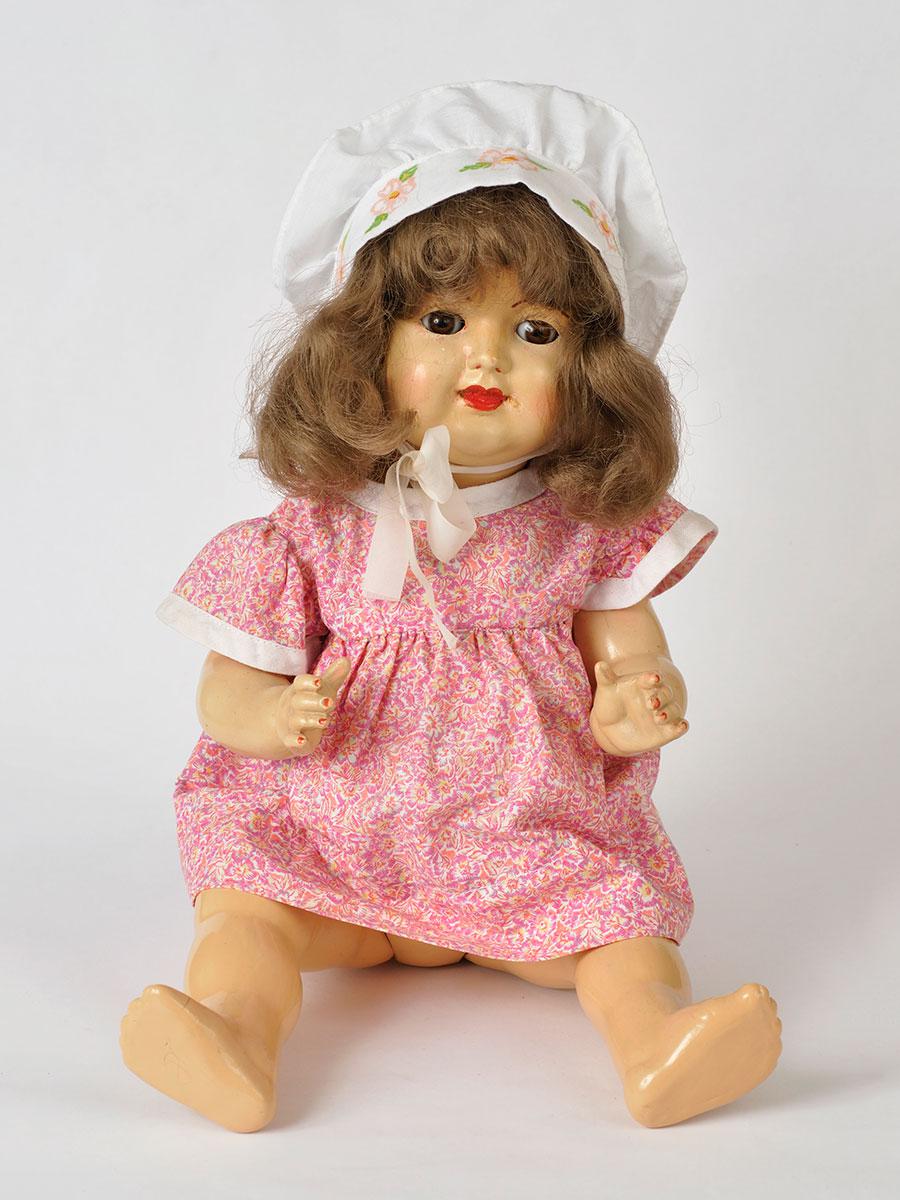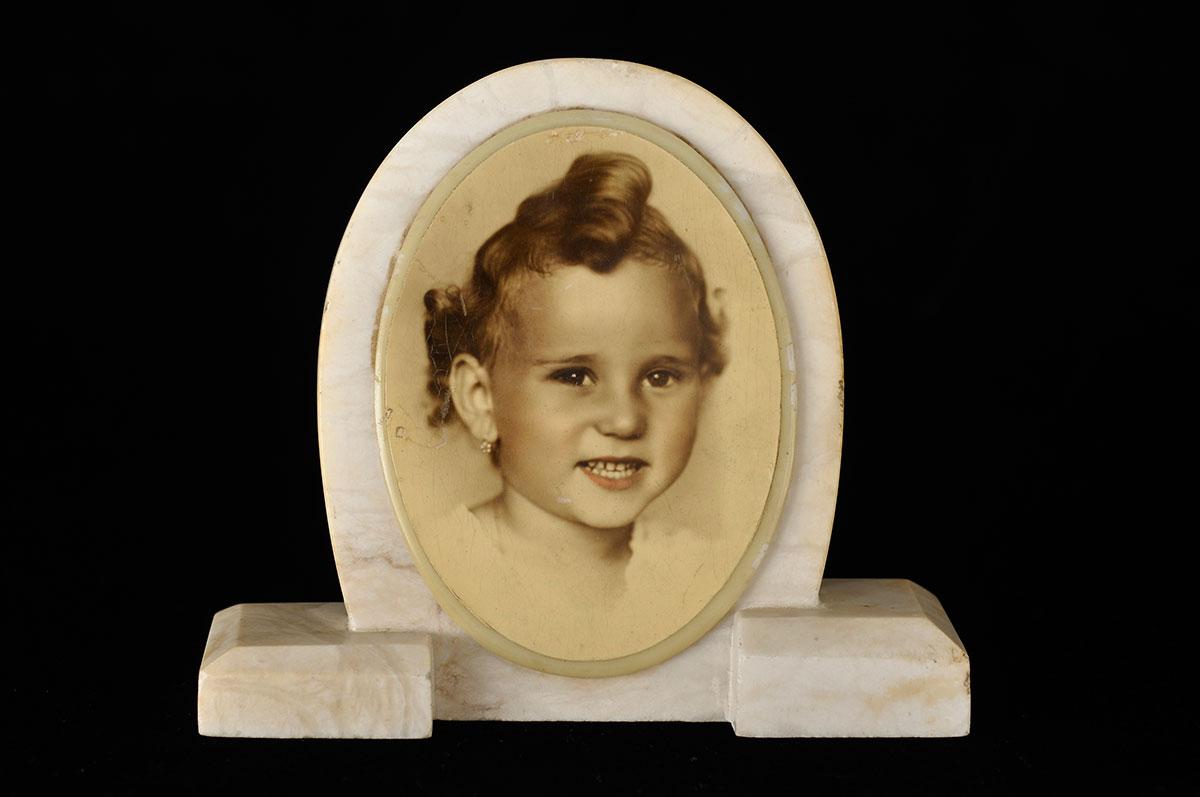
Yad Vashem Artifacts Collection
Courtesy of Yehudit (Friedman) Gilboa, Nahariya, Israel


אוסף החפצים מוזיאון יד ושם
באדיבות יהודית גלבוע (פרידמן), נהריה

Sunday to Thursday: 09:00-17:00
Fridays and Holiday eves: 09:00-14:00
Yad Vashem is closed on Saturdays and all Jewish Holidays.
Entrance to the Holocaust History Museum is not permitted for children under the age of 10. Babies in strollers or carriers will not be permitted to enter.

Yad Vashem Artifacts Collection
Courtesy of Yehudit (Friedman) Gilboa, Nahariya, Israel


אוסף החפצים מוזיאון יד ושם
באדיבות יהודית גלבוע (פרידמן), נהריה

Yehudit was born in Budapest in 1941 to Zsuzsanna and Laszlo Friedman. In 1942, Zsuzsanna was informed that her husband, who had been conscripted into a labor battalion, had been killed.
After the German occupation of Hungary in 1944, Zsuzsanna moved with Yehudit to "marked houses" – houses marked with a yellow Star of David. At the beginning of November 1944, it was decreed that all Jewish women over the age of 17 would be recruited for work in labor camps, and Zsuzsanna was taken away. Little Yehudit remained behind with her grandparents.
Zsuzsanna was taken with the rest of the women and put on a cargo ship that took them on the Danube to the village of Kophaza where they were divided up between the peasants to work in the fields. Zsuzsunna was fortunate in that she was treated well, but at the beginning of April 1945, with the approach of the Red Army, the women were marched off towards the Austrian border where they were put on trains. Due to the bombardment of the railway lines, the train could not proceed and the women were marched to the Mauthausen concentration camp.
Zsuzsanna was liberated in May 1945 weighing only 28 kg and suffering from a head wound. In spite of her condition, she set off for Budapest. When she met her four-year-old daughter, the girl said, "You are not my mother - my mother has brown hair, not white." During the months that they had been separated, Zsuzsanna's hair had turned white. On her return, Zsuzsanna took her daughter to be photographed and had the photograph printed on a marble slab. At the same time, Zsuzsanna bought a new doll for her daughter to replace the doll that Yehudit had with her in the ghetto. In 1956, Zsuzsanna and Yehudit immigrated to Israel.
Yad Vashem Artifacts Collection
Courtesy of Yehudit (Friedman) Gilboa, Nahariya, Israel

Thank you for registering to receive information from Yad Vashem.
You will receive periodic updates regarding recent events, publications and new initiatives.

"The work of Yad Vashem is critical and necessary to remind the world of the consequences of hate"
Paul Daly
#GivingTuesday
Donate to Educate Against Hate


Worldwide antisemitism is on the rise.
At Yad Vashem, we strive to make the world a better place by combating antisemitism through teacher training, international lectures and workshops and online courses.
We need you to partner with us in this vital mission to #EducateAgainstHate
The good news:
The Yad Vashem website had recently undergone a major upgrade!
The less good news:
The page you are looking for has apparently been moved.
We are therefore redirecting you to what we hope will be a useful landing page.
For any questions/clarifications/problems, please contact: webmaster@yadvashem.org.il
Press the X button to continue



